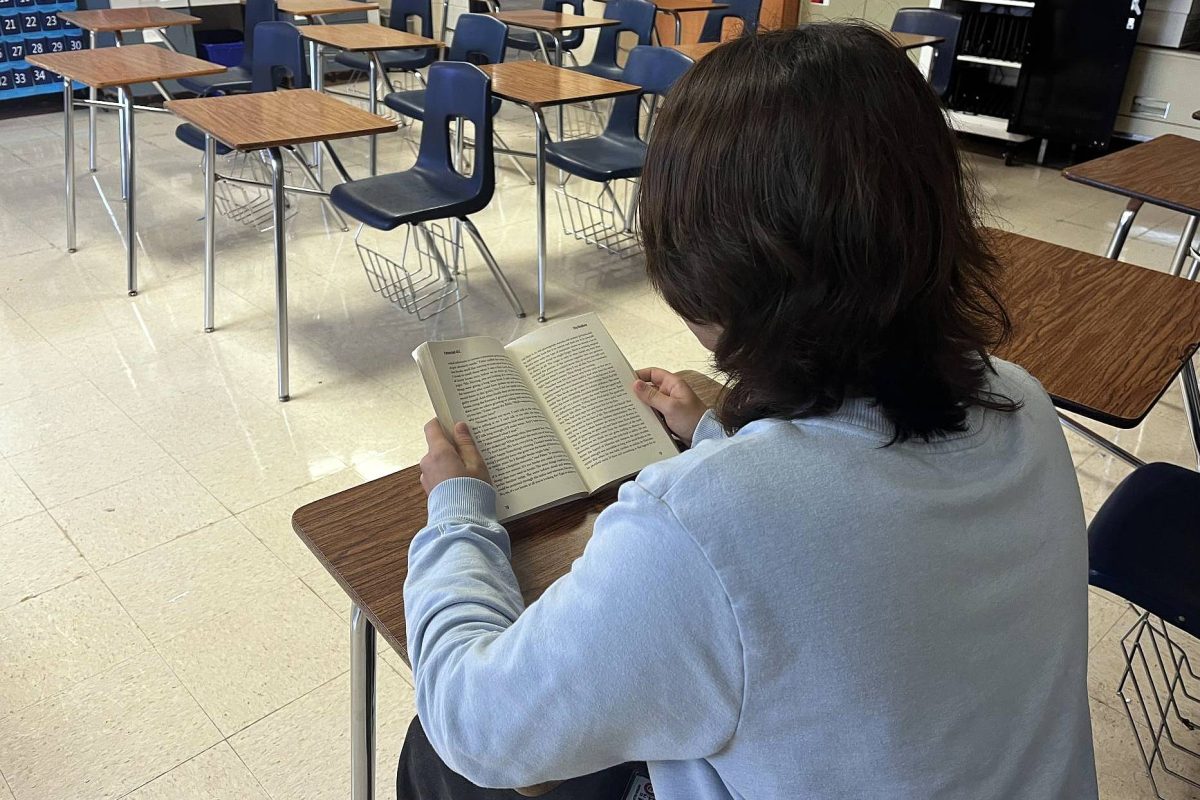House Bill 900 is requiring public school libraries to remove any books deemed “sexually explicit” from their collection, and teachers to keep a running catalog of books in their classrooms.
Originally passed last summer, the bill went into effect Sept. 1, 2023, but the school district is only now enforcing it.
“It falls under the campuses to determine if a book should be in our collection or not,” librarian Amanda Trussell said, “but it does not define what ‘sexually explicit’ is, so it’s kind of a gray area.”
For teachers who allow students to read books from a selection they keep in their classrooms, they now have to keep a running list of the books available to all parents.
“Elementary teachers have been advised to use the app Libib to inventory the books available in our classroom libraries,” Margie Turner, third grade teacher at Rahe Bulverde Elementary School said. “We have until January to complete this task.”
Because of its time consuming nature, the new requirements are changing the way some teachers use their classroom libraries.
“I don’t want to speak for every teacher, but I know a lot of teachers have made the decision to not make it a classroom library anymore,” English teacher Austin Petray said. “This is now a decorative bookshelf behind (my) desk, and it is no longer for the students.”
Petray’s hesitancy to allow students to use his library is because he would be liable if a student found the contents of a book from him inappropriate.
“Many of these books on (my shelf) come from other teachers, so I haven’t read all of them, and I can’t vouch that all of these are squeaky clean,” he said. “I know that other teachers were okay with having them in the class library, but it would be on me.”
However, Turner plans to work around the changes to allow her students to continue to use the library.
“My students use my classroom as a supplement to the school library,” she said. “It is a convenient and easily accessible location for books from multiple genres and reading levels.”
Junior Hannah Daniel understands where the bill is coming from, but believes it is asking too much of teachers.
“I can understand why some parents wouldn’t want sexually explicit content in the library,” she said, “but I think the teacher catalog is way too excessive and authoritarian. It’s like helicopter parents.”
The legislation comes at a time when conservative states across the nation have seen an uptick in book bans, especially in public schools.
“I think there’s a lot of fear, and people feel like they’re out of control, and that’s one thing they can control,” Trussell said. “But we have a lot of people that want to control other people’s kids, not just their own, and that’s where the problem is really coming in.”
For Trussell, book censorship in schools reaches beyond the classroom.
“We’re toeing the line of not just what you can control, but what you can produce, and that to me is equally frightening,” Trussell said. “You’re telling authors ‘you can write this, but in this state, we’re not going to let anyone under this age read it.’ It’s just not right.”
Trussell has organized a freedom walk with the government teachers that will take place Sept. 24 during banned book week to raise awareness about freedom of speech.
“One of the things we’re going to do in the freedom walk is have a station that tells you who your representative is,” she said. “Reach out to them and let them know that this isn’t okay.”
Trussell encourages people to fight book bans by continuing to read the books being censored and to speak out against the issue.
“You have freedom to read; it’s protected by the constitution,” Trussell said. “The only way to change (book bans) is to act upon your freedoms.”
This story was originally published on Valley Ventana on September 16, 2024.




































